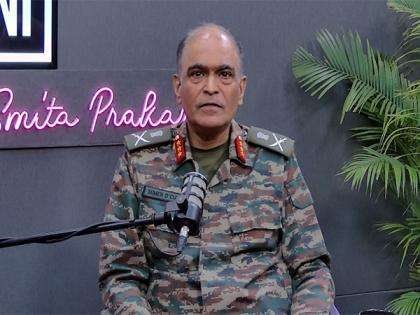Introduction:
A senior military official has sparked controversy with a sharp rebuke of Pakistan’s reported plans to relocate its Army Headquarters (GHQ) from Rawalpindi to a new location. The officer, speaking anonymously, dismissed the idea as impractical, stating, “They have to find a deep hole to hide it if they want to move it securely.” The remark highlights growing tensions within Pakistan’s defense establishment over security vulnerabilities and strategic priorities.
The Proposed Relocation and Its Challenges
Reports suggest that Pakistan’s military leadership is considering shifting the GHQ—a nerve center of the country’s defense operations—due to heightened security risks. Rawalpindi, the current base, has faced threats from militant groups, and some officials argue that a more secure, undisclosed location could reduce exposure to attacks.
However, critics, including the unnamed officer, argue that the move would be logistically complex and costly. The GHQ is deeply entrenched in Rawalpindi’s infrastructure, with extensive communication networks, intelligence hubs, and historical significance. Relocating it would require massive investment and could disrupt military coordination at a time of regional instability.
Security Risks and Strategic Implications
Pakistan’s military has long been a target for militant factions, including the Tehreek-e-Taliban Pakistan (TTP) and Baloch separatists. Proponents of the move claim that dispersing key installations could mitigate the risk of a catastrophic attack. However, skeptics counter that no location in Pakistan is entirely safe, and the symbolic shift could be perceived as a retreat rather than a strategic repositioning.
The officer’s sarcastic remark about finding “a deep hole” underscores doubts about the feasibility of keeping a new HQ hidden and secure. Military analysts note that modern surveillance and intelligence capabilities make concealing such a large facility nearly impossible.
Political and Public Reaction
The debate has spilled into public discourse, with opposition leaders questioning the rationale behind the potential move. Some view it as an unnecessary expenditure amid Pakistan’s economic crisis, while others see it as a possible pretext for further militarizing other regions. Social media has amplified the officer’s comments, with hashtags like #GHQRelocation and #PakArmyHQ trending.
Defense experts are divided. “If security is the concern, strengthening Rawalpindi’s defenses makes more sense than uprooting the entire HQ,” said retired General Talat Masood. Others suggest the move could be part of a broader strategy to decentralize military command.
Conclusion:
Pakistan’s potential relocation of its Army Headquarters has ignited fierce debate within military and political circles. While security concerns are valid, the practicality of such a move remains in question. The anonymous officer’s blunt critique—“They have to find a deep hole”—captures the skepticism surrounding the plan. As discussions continue, the decision will hinge on balancing security, cost, and operational efficiency in an increasingly volatile geopolitical climate.



